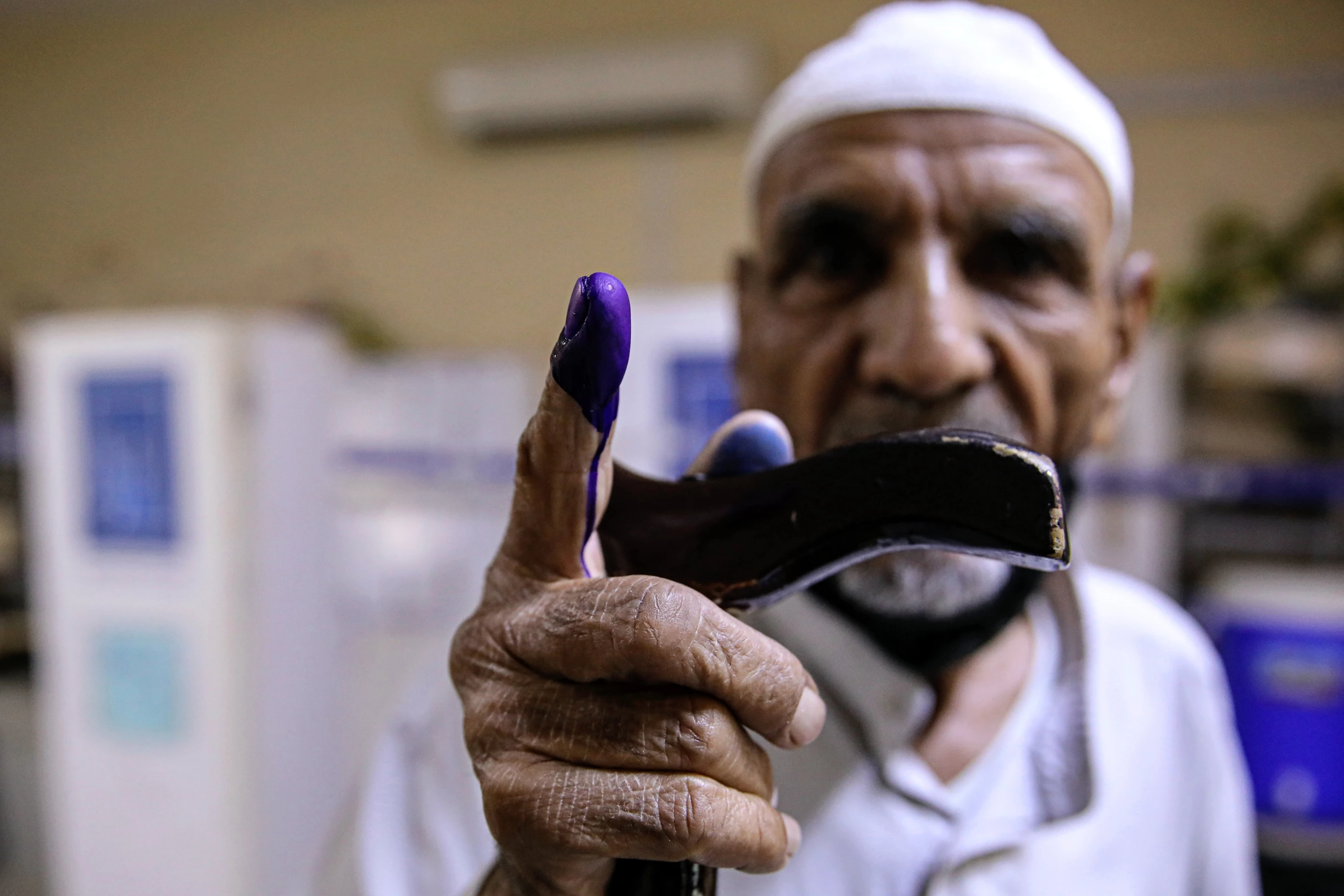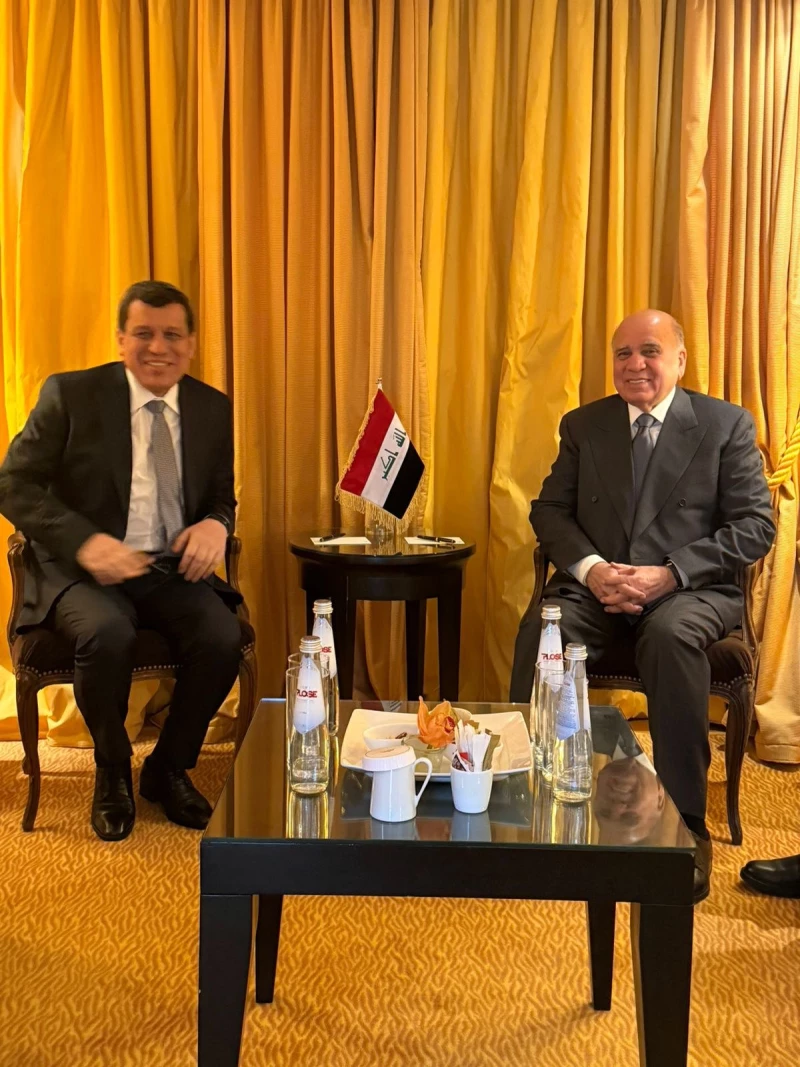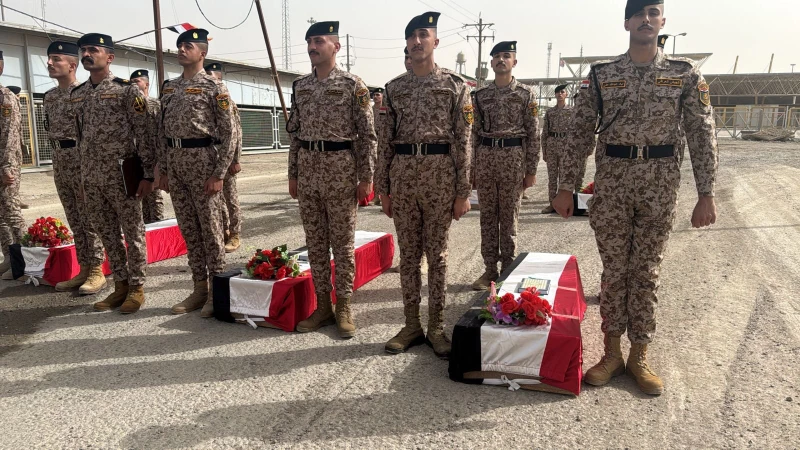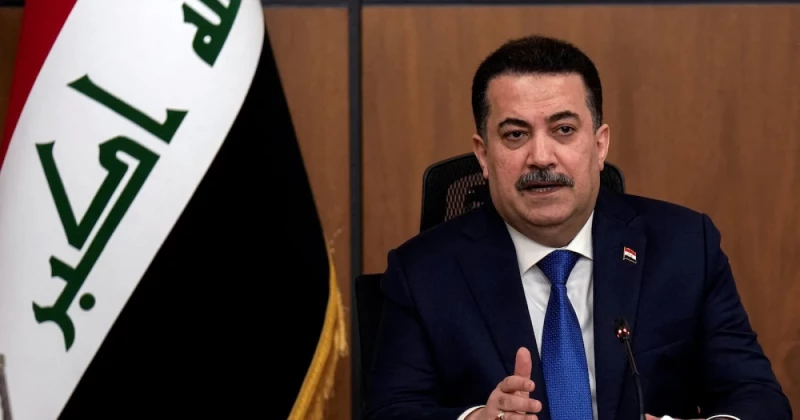ERBIL, Kurdistan Region of Iraq - The provinces of Dhi Qar, Maysan, and Muthanna in southern Iraq are witnessing notable electoral activity despite the influential Shiite cleric Muqtada al-Sadr’s decision to boycott the 2025 elections, a decision that initially appeared likely to create a political vacuum, but has instead reshaped competition between traditional and emerging blocs.
Since the launch of the electoral campaign, public gatherings and party seminars have increased as traditional Shiite forces, including the State of Law Coalition, the Sadiqoun Alliance, the Badr Organization, and the Reconstruction and Development List, work to capitalize on the Sadrist absence and attract its former popular base in previous strongholds.
According to electoral data, parliamentary seat allocations in the southern provinces vary. Based on population, Dhi Qar receives 19 seats, including five reserved for women; Maysan receives 10 seats, including three for women; and Muthanna receives seven seats, including two for women.
Despite the boycott, field indicators in the provinces show a relative increase in expected voter turnout compared to the 2021 elections. Competing political lists are intensifying social activities and conducting field visits to rural and tribal areas to fill the electoral space left by the Sadrists.
Ahmad al-Musawi, head of a political association in Dhi Qar, told The New Region that the decision of Sadr’s National Shiite Movement not to participate will have political repercussions given its absence from the political scene as an important element in the Shiite equation. “However, the electoral system does not react emotionally, it functions according to numbers,” he said. “Therefore, the withdrawal will not create a major institutional vacuum, as other parties have already prepared candidates to fill any potential gap.”
Musawi added that the previous parliamentary experience showed the system allowed candidates from other blocs to rise after Sadrist lawmakers withdrew. He noted, however, that the absence of the movement may complicate the process of selecting the next prime minister, as one of the balancing poles in Shiite consensus is now missing. That absence could return Iraq to the political deadlock seen after the 2021 elections.
Political science researcher Ghassan Mohammed said the upcoming elections represent “a new test of democratic maturity in Iraq.” He argued that the issue is not only the participation or boycott of a single movement, but also the erosion of trust between the public and political parties.
Mohammed said the real crisis is that many citizens do not understand the relationship between the executive and legislative branches. This lack of awareness, he said, pushes party messaging toward populist promises instead of realistic programs.
He noted that the Sadrist movement chose boycott as an internal political decision, but in doing so, lost the opportunity to form an organized parliamentary opposition. Meanwhile, traditional parties such as State of Law, Badr, and Sadiqoun appear more cohesive thanks to a loyal voter base in southern cities, unlike newer civil forces still struggling to establish meaningful support.
Salah al-Musawi, director of the Center for Southern Studies, told The New Region that the Sadrist boycott has opened space for other forces in southern cities, considered a Shiite stronghold, to strengthen their political presence. “The strongest competitor, which formed a major electoral weight, has withdrawn from the arena,” he said. “This has given traditional and active parties a greater opportunity to consolidate their influence.”
Musawi said the current electoral landscape is shaped largely by two prominent lists: the Reconstruction and Development List led by Prime Minister Mohammed Shia’ al-Sudani, which benefits from government performance and field mobility, and the Sadiqoun Bloc, whose influence has risen over the past four years. These two forces now form the main competitors to the State of Law Coalition, the Badr Organization, and other traditional Shiite parties.
He added that Sudani’s political strength stems from two main factors: his possession of executive authority tools that grant him tangible achievements in service, economic, and security files; and the relative decline of Iranian influence in Iraqi decision-making after Israel’s war on Gaza, which shifted Tehran’s regional priorities.
According to Musawi, this new environment has given Sudani more room for maneuver and increased independence in state management, supported by growing Arab and Western encouragement. Some observers view this as the beginning of a new phase of political balance in Iraq, where developmental pragmatism aligns with regional openness.
The al-Bayan Center for Studies and Planning released its latest survey on the 2025 parliamentary elections, showing new indicators related to expected voter turnout and candidate numbers in Dhi Qar, Maysan, and Muthanna, as well as projected vote distribution between traditional and emerging alliances.
The total number of candidates across the three provinces reached 837, including 227 women. The distribution includes 141 candidates in Maysan, 37 of them women; 570 candidates in Dhi Qar, 154 women; and 126 candidates in Muthanna, 36 women.
According to the survey, six traditional parties and alliances in Maysan received about 73 percent of total support. The Reconstruction and Development Alliance leads with 22 percent, followed by the Badr Organization with nine percent, and the National State Forces and the Abshir Ya Iraq Alliance with about six percent each.
Estimates suggest the Reconstruction and Development List may win two to three of Maysan’s 10 seats, while the Badr Organization may secure one or two. The remaining seats are expected to be distributed among the National State Forces, Abshir Ya Iraq, Sadiqoun, and other local alliances.
In Dhi Qar, considered one of the most competitive electoral arenas, five traditional parties and alliances received 69 percent of total support. The Reconstruction and Development Alliance leads with 28 percent, followed by the State of Law Coalition at 15 percent. The National State Forces and the Badr Organization follow at about nine percent each, and Sadiqun at eight percent.
Based on these percentages, traditional forces are expected to win about 13 to 14 of Dhi Qar’s 19 seats, including five to six seats for the Reconstruction and Development Alliance and two to three seats for the State of Law Coalition. Remaining blocs, including Sadiqoun, Badr, the National State Forces, Abshir Ya Iraq, and others are expected to secure about one seat each.
In Muthanna, results indicated lower voter enthusiasm, with 55 percent of those surveyed intending to vote for five main alliances. The State of Law Coalition leads with 25 percent followed by the Reconstruction and Development Alliance at 17 percent, then Sadiqoun at eight percent, with the Foundation Coalition at three percent and the National State Forces at two percent.
Based on these figures, the State of Law Coalition could win two to three seats, while the Reconstruction and Development Alliance may secure one or two. Sadiqoun will likely obtain one seat. Remaining alliances are expected to compete for a final single seat.
The southern electoral environment appears to be undergoing a major shift, as competition grows between developmental pragmatism, represented by the Reconstruction and Development List, and traditional rhetoric based on historical loyalties.
The list led by Sudani benefits from executive power tools and field mobility, giving it an advantage in service and infrastructure issues. Traditional forces are reevaluating strategies to rebuild their voter bases. But the larger challenge remains building public trust, especially since higher participation is not guaranteed unless parties present clear, practical programs rather than general promises.
If developmental forces win influential positions, analysts say the results may reshape relations between government and citizens and influence the formation of the next government. Iraq’s electoral system does not produce a direct winner, but instead forms governing blocs through post-election alliances, a process that could gain new political weight in the south.



 Facebook
Facebook
 LinkedIn
LinkedIn
 Telegram
Telegram
 X
X


